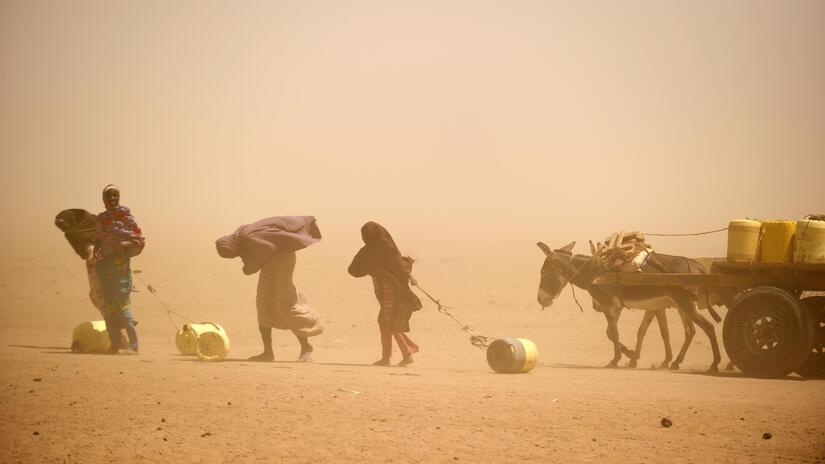Human-caused climate change made the humid heatwave in southern West Africa during February ten times more likely, according to a rapid analysis by an international team of leading climate scientists from the World Weather Attribution group.
The study also found that if humans do not rapidly move away from fossil fuels, causing global warming to rise to 2°C above preindustrial levels, West Africa will experience similar heatwaves about once every two years. Developing heat action plans will help protect vulnerable people from dangerous heatwaves in West Africa, according to the researchers (which includes researches from the Red Cross and Red Crescent Climate Centre).
In February, West Africa was hit by an unusually intense humid heatwave with temperatures not normally seen until March or April. The most severe heat occured from February 11-15 with temperatures above 40°C.
In Nigeria, doctors reported an increase in patients presenting for heat-related illness, people complained of poor sleep due to hot nights and the national meteorological agency issued several warnings about the heat.
In Ghana, the national meteorological agency also warned people to prepare for dangerous temperatures. The heat occurred during the finals of the Africa Cup of Nations football tournament in Côte d'Ivoire.
“Many people do not appreciate the dangers of heat – unlike storms, fires or droughts, heatwaves don’t leave an evident trail of destruction," said Maja Vahlberg, risk consultant at the Red Cross Red Crescent Climate Centre, which contributed to the research. “However, heatwaves are ‘silent killers.’ They can be incredibly deadly for the elderly, people with existing health conditions and outdoor workers."
“Humidity makes a massive difference to the human experience of heat. While the average air temperature across West Africa during mid-February was about 36°C, the humidity meant it would have felt like 50°C.
“Countries across Africa, and the world, need to prepare for heat. Simple measures like awareness campaigns and warning systems can save thousands of lives during heatwaves.”
Due to the hot and humid conditions, additional ‘cooling breaks’ were taken during the matches so players could rehydrate. February this year was the hottest February on record globally and the ninth consecutive month in a row that a hottest month record was broken.
Climate change, caused by burning fossil fuels like oil, gas and coal, and deforestation, has made heatwaves more frequent, longer and hotter around the world. To quantify the effect of climate change on the hot and humid temperatures in West Africa, scientists analysed observed weather data and climate models to compare how the event has changed between today’s climate, with approximately 1.2°C of global warming, and the cooler pre-industrial climate, using peer-reviewed methods.
For more information, please visit the World Weather Attribution webpage.

